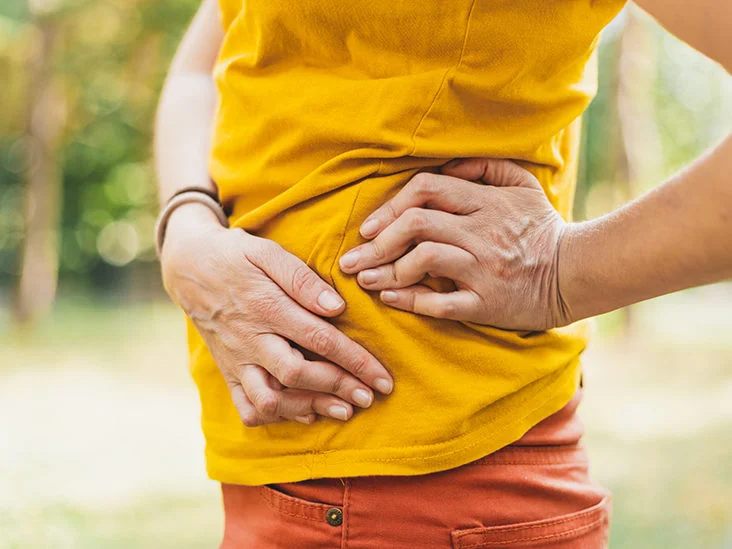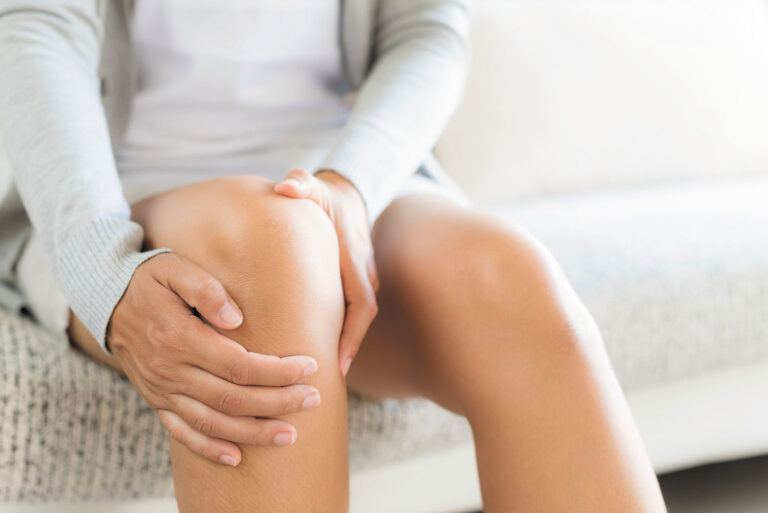Our bodies are connected by muscles, ligaments, nerves, and bones, which serve as the structural foundation of our bodies. The ability of the nerves to work normally without irritation or obstruction, muscle strength, joint mobility, and ligament stability are all essential for appropriate function. Back discomfort can develop from a variety of orthopedic issues because of the relationship between the back, knee, and hip.

Hip Ache
Back discomfort might result from pelvic region support being inadequate due to hip weakness. Knee pain may result from the femur’s increased internal rotation. Another cause of hip pain is tightness in the iliotibial band brought on by bursa irritation. Hip discomfort can result from limitations in hip joint motion, which can also alter the mechanics of the back and knee. The position of the lower back and sacroiliac joints can be affected by tight hip flexors towards the front of the hip. It is typical to experience hip and knee discomfort simultaneously. Your doctor or therapist will work with you to identify the root cause of both illnesses and create a treatment plan. Indeed, knee and low back pain can be a result of hip discomfort and dysfunction.
Knee Ache
Iliotibial band tightness might result in hip issues and hurt the outside of the knee. Both hip and knee issues may result from tightness in the rectus femoris muscles, which are involved in knee flexion. Hip and knee pain might coexist in some persons. It is crucial to have an orthopedic professional analyze you so that the cause of your discomfort can be found. Hip and low back pain can undoubtedly be brought on by knee discomfort and dysfunction.
WHEN EXPERIENCING KNEE OR HIP PAIN, KEEP MOVING
The hips and knees, the body’s two biggest joints, are essential for mobility. Both of these joints are put under a lot of strain over the course of a lifetime of standing, walking, running, dancing, and sports. They must support our entire weight and coordinate movement. Inevitably, many people who live into old age experience discomfort in their hips and knees. Nearly everyone will eventually experience joint problems as they age. But, maintaining the health of your hips and knees and treating any discomfort you experience will help you maintain your mobility as you age.
When hip or knee pain arises, try these self-care strategies :
1. RICE for severe pain or wounds: Any form of joint injury responds well to the first aid measures of RICE, which stands for rest, ice, compression, and elevation.
Rest:- Don’t fully restrict your exercise; doing so could exacerbate injuries. Avoid the motion that caused the injury instead, and try to engage in activities that relieve pressure on the joint (see the list below for some ideas).
Ice:- Applying an ice pack, either homemade or purchased, to the damaged area can ease discomfort and swelling. Use it for 20 minutes at a time, followed by 20-minute breaks. To avoid getting frostbite, place a layer of cloth or another substance between the ice and your skin.
Compression:- An elastic bandage or neoprene support helps hasten healing and lessen edema. A tight wrap should not cause the skin to turn chilly or blue.
Elevation:- By preventing blood from collecting at the injury site, elevating an injured leg on a pillow or stool can also help minimize swelling.

2. Heat therapy: Heat therapy is used to treat chronic pain and stiffness. In the first couple of days following an injury, ice is the best treatment to minimize swelling; later, heat therapy can also help reduce pain by reducing stiffness and encouraging flexibility.
Additional ways to maintain your mobility so you may continue being active were :
- Taking a lengthy walk
- Try using an elliptical trainer
- Stationary bike (recumbent or upright)
- Tai chi
- Swimming
- Water aerobics
Finding the cause is crucial so that all affected regions can be treated because the hip and knee can both create discomfort. You may arrange a doctor’s appointment with Speciality Care Clinics by calling (469) 545-9983.
